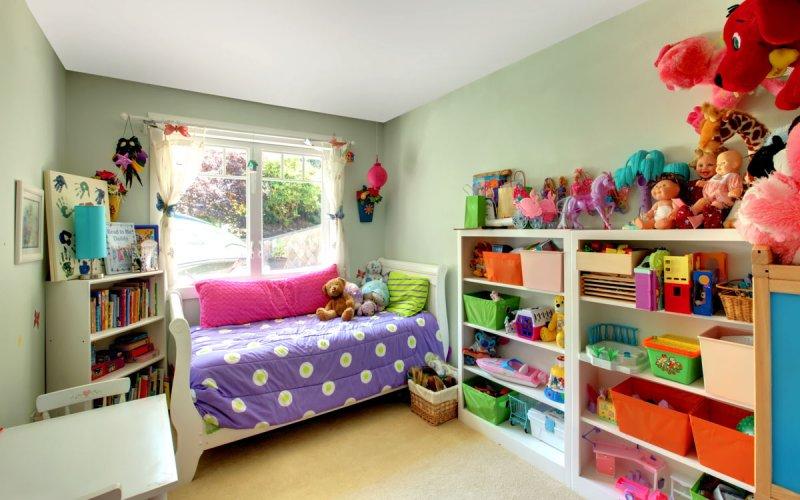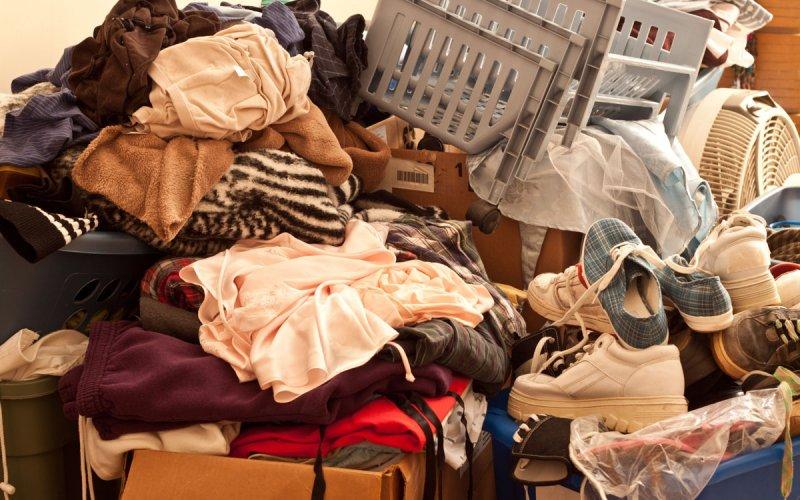Decluttering & Organizing Your Space
Decluttering and organizing your space helps you take control of your "stuff" and improve your health, happiness, and overall well-being.
By: Sylvia Slezak | Apr 2020
 Neatly organized living room
photo by csp_irina88w
Neatly organized living room
photo by csp_irina88w
Research shows that clutter stops the energy flow and creates stagnation, exhaustion, and exasperation. Stagnant energy in your home can weaken your decision-making skills.
Keeping things neat and tidy around the home may not make you into a "clean freak," but it can play a big part in maintaining your personal happiness. Here are ways to create a home environment that can give you time, space, energy, and leave you feeling less anxious, more peaceful, and confident.
Practically every living space could benefit from some form of improvement. Even when there is nothing outwardly wrong with the appearance of a room, there are always steps that can be taken to make better use of its space. There are two options with messy spaces: (1) ignore or (2) prevent.
Ignoring a messy space means there will come a time when more cleaning will need to be done to get it uncluttered. As the mess continues to grow out of control, so does the mental weight bearing on your psyche. Like so many things in life, the resulting stress has a way of building upon itself and becoming a vicious cycle. You have to work at preventing the pileup, because it doesn't go away by itself.
Preventing or reducing clutter by devoting fifteen minutes a day to the task at hand may be a better option, as opposed to spending an entire day or weekend and making a marathon out of it. Even if you start out with five minutes a day instead of fifteen, you are on your way to providing a clean and healthy environment. A lack of cleanliness and organization suggests a diminished sense of self-worth, and things like a pile of dirty dishes or a stack of books on the floor instead of the shelf, can chip away at your self-esteem.
It has been said that your space is a reflection of yourself. Imagine what your clutter says about your patience and attention span. You not only have objects strewn all over the place, you have thoughts bouncing around in your head and the two of them are competing for attention – making it impossible to really focus. By developing a less demanding living space your concentration will improve.
In addition to your mental health improving, your air quality will also improve by decluttering your surroundings. Dust bunnies will have a field day finding new dwelling places among your various possessions that lie scattered across your home. These dust particles increase the amount of toxins and other contaminants floating through the air around you, which in turn leads to coughing, eye irritation, and asthma attacks, among other unwanted reactions. By discarding dust-collecting items, cleaning and organizing them or putting them in boxes or other forms of storage, you have taken a real step toward healthier living. And because the quality of the indoor air itself has improved, you'll be less anxious and unfocused, and will literally be breathing easier.
So, before any extremely flammable piles and stacks of mail, shopping bags, and magazines become a fire hazard, here is a check list to start with in organizing your home.
KITCHEN
- store rarely used items (cake platters, pitchers, vases, large holiday serving pieces) in unused cabinet storage spaces (above refrigerator)
- store food, dishes, everyday service ware in easy-to-reach cabinets
- discard worn-out or broken items (burnt/cracked wooden spoons, cutting boards, cracked/chipped glassware, crockery)
- eliminate excess Rubbermaid/Tupperware storage containers (unmatched boxes and lids)
- use plastic wrap, zip-lock bags, or tin foil for storage
- get rid of different sized plates and bowls – buy a uniform set.
- designate a space for plastic food containers
- recycle or toss excess number of plastic and paper bags
- recycle junk mail right away
BEDROOM
- keep beds freshly made daily (pull up sheets & comforter)
- keep nightstands clear & organized (only keep must-haves out)
- utilize bedside drawers to store away things not used daily
- recycle older magazines (3+ months)
- keep stacks of books on bookshelves (not on nightstand collecting dust)
- remove clothes that are ripped, stained, don’t fit, no longer in fashion
- move little-used long formal dresses & coats to a separate location
- install shelves in the bottom half for shoes & handbags
- limit wardrobe to items regularly worn
- purge closet yearly (clothes, shoes, accessories untouched in 12 months
- purchase only necessary items
- establish a rule for future purchases: "one in, one out"
LAUNDRY
- keep clothes off the floor
- use hampers to sort & keep laundry off the floor
- utilize vertical space (open shelving)
- keep laundry supplies in easily accessible area
- use small garbage bag/pail for dryer sheets (empty regularly)
CLOSETS & STORAGE
- recycle old towels (for car wash, beach, pool, camping)
- donate extra towels or sheets not being used
- toss half-empty cans of paint, old decorations, items never used
- assign a shelf for each room (towels, linens, pillows, blankets)
ELECTRICAL OUTLETS
- keep papers, magazines, books away from outlets that are in use
- unplug charging devices no longer in use
- wrap up slack cords with twisty-ties (easier to dust & clean)
- avoid using more than one power strip or plug multiplier in a socket (prevents circuit overload)
DOORS & ENTRY WAY
- make sure every item serves a purpose (key holder, lighting, mail bin, misc item container, hat rack, umbrella stand)
- clear front closet or coat rack of items out of season (donate items not worn in years)
- stow currently worn shoes on a low shoe rack against the wall
- avoid items from piling up (tote bags, umbrellas, baseball hats)
- keep bags, hats, coats inside hallway closet (donate spares)
After you've organized your environment, train yourself and those sharing the space to put things back in their spot. Everything should have a specific place, and should be put back in its designated area after every use. If you want to maintain an uncluttered home, you have to commit to returning items to where they belong. A golden house rule you may want to adopt for items that don't belong on the floor is, "off the floor or out the door.”
If you need help to get started, hire a professional organizer, or if you'd like custom-built storage units, check out CityOf.com to find the services you need to declutter and organize your home.

















